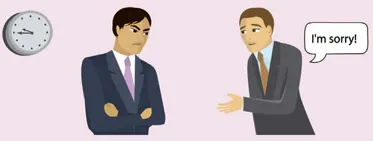A. Phrasal and prepositional verbs
 Some verbs are used with different particles and prepositions.
Some verbs are used with different particles and prepositions.
I listen to the radio in bed in the morning.
I waited for the bus for half an hour yesterday.
I asked for a black coffee, not a white one.
 Where do I pay for our meal?
Where do I pay for our meal?
I hope you can come to my party.
This book belongs to Sarah Smith.
What are you thinking about?
Lauren thanked her mother for the present.
Damian apologised for being late.
B. Phrasal verbs
 Some verbs have different meanings when they are
used with different prepositions, for example, look.
Some verbs have different meanings when they are
used with different prepositions, for example, look.
I love looking at old photographs.
If you want to find your key, you must look for it.
Parents look after their children.
[they take care of them]
You look forward to
something nice in the
future, for example, a
friend’s visit, or a
holiday.
C. Adjectives
Some adjectives are also followed by prepositions.
I’m good at geography but bad at maths.
I’m interested in (hearing) all your news.
He is afraid of mice.
Lucy is proud of winning a medal and her mother is proud of her.
Note: You are used to what you know well: I’m used
to getting up early, I always do.
You have to get used to something new, for example a
new school or driving on the other side of the road.
Common mistakes
She’s a lovely person and I’m really happy about her success
[NOT happy for her success].
D. Grammar
Prepositions are followed by a noun: Artur is good at tennis
or by the -ing form of the verb: Artur is good at playing the piano.
Tip
Look carefully at prepositions when you read in English. Make a note of any phrases which use
prepositions in a new way.
|


Bình luận